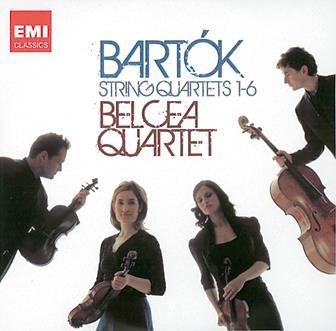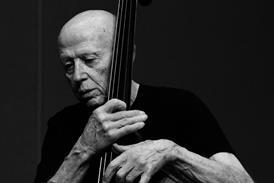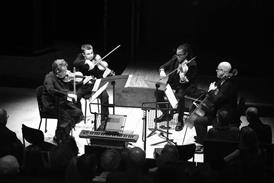
The Strad Issue: January 2008
Musicians: Belcea Quartet
Composer: Bartók
The Belcea Quartet has established itself as one of the finest ensembles of its generation. Even so, it is still a young group, founded not much over ten years ago, and these Bartók works constitute one of the most formidable challenges any quartet can undertake to perform live, never mind commit to the permanence of a recording. Still, it’s done it, and what it’s done is astonishing. There is a maturity and authority to these performances which some quartets, quite frankly, never achieve at all.
The Belcea players have the measure of Bartók in all his voices, from the (very) late-Romantic inflections of the First Quartet to the unique, etiolated sound world of the later works. Technically the playing is impeccable, with superb intonation, something particularly evident in the passages in unison and octaves, where many another group has been found wanting. The tone is always clear and focused (as is the recorded sound), with a touch of warmth to relieve the music even at its most bleak.
There is a nervous energy in some of the playing, noticeable in movements like the nightmarish Prestissimo second movement of the Fourth Quartet, following the controlled violence of the preceding Allegro. In the ‘night-music’ Adagio molto of the Fifth Quartet the players produce an extraordinary blend of semi-stasis and sure progression, weaving Bartók’s many fragments into a single musical sentence. There, indeed, is the essence of the quartet’s achievement. The severe logic of Bartók’s music can be analysed on paper, but it is much harder to convey in performance. It is the sheer musical conviction of these readings that is astounding.
Everything has sense and purpose, every detail, clear in itself, is part of the greater whole. We can see the trees, and see the wood as well. This set must surely be a benchmark not only in the development of the Belcea Quartet but in the CD catalogue, which already has a good collection of superb accounts. And if they can play them like this now, think what they will be like in 20 years. Now there’s something to look forward to.
TIM HOMFRAY
































No comments yet